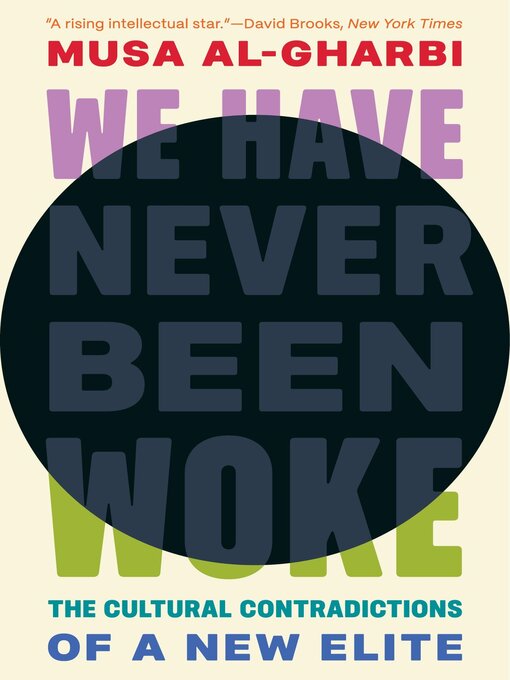How a new "woke" elite uses the language of social justice to gain more power and status—without helping the marginalized and disadvantaged
Society has never been more egalitarian—in theory. Prejudice is taboo, and diversity is strongly valued. At the same time, social and economic inequality have exploded. In We Have Never Been Woke, Musa al-Gharbi argues that these trends are closely related, each tied to the rise of a new elite—the symbolic capitalists. In education, media, nonprofits, and beyond, members of this elite work primarily with words, ideas, images, and data, and are very likely to identify as allies of antiracist, feminist, LGBTQ, and other progressive causes. Their dominant ideology is "wokeness" and, while their commitment to equality is sincere, they actively benefit from and perpetuate the inequalities they decry. Indeed, their egalitarian credentials help them gain more power and status, often at the expense of the marginalized and disadvantaged.
We Have Never Been Woke details how the language of social justice is increasingly used to justify this elite—and to portray the losers in the knowledge economy as deserving their lot because they think or say the "wrong" things about race, gender, and sexuality. Al-Gharbi's point is not to accuse symbolic capitalists of hypocrisy or cynicism. Rather, he examines how their genuine beliefs prevent them from recognizing how they contribute to social problems—or how their actions regularly provoke backlash against the social justice causes they champion.
A powerful critique, We Have Never Been Woke reveals that only by challenging this elite's self-serving narratives can we hope to address social and economic inequality effectively.
-
Creators
-
Publisher
-
Release date
October 8, 2024 -
Formats
-
Kindle Book
-
OverDrive Read
- ISBN: 9780691232614
-
EPUB ebook
- ISBN: 9780691232614
- File size: 945 KB
-
-
Languages
- English
-
Reviews
-
Library Journal
September 1, 2024
Sociologist al-Gharbi, a columnist for The Guardian, debuts with a book that sets the goal of sociologically answering whether any of the "awokening" movements--four in the modern century--have actually changed, impacted, or improved the lives of their target audiences. Al-Gharbi's main argument is consistently focused on symbolic capital and symbolic professions, asserting that a movement's affluent, well-educated, white members benefit the most. He asserts that the current social justice movement began with Occupy Wall Street, not Trump's election to the presidency. He explores the evolution of terms, going from "politically correct" to "woke," for example, and he expounds upon public beliefs vs. private behavior, including the common defense that people want to be on the "right side" of history. Each of the movements is examined in detail and includes strong examples of the disconnect within each one. The impacts of race, gender, class, and consumerism are all explored with relevant historical context and modern examples from companies such as Uber, Grubhub, and Amazon. VERDICT A sharp, well-researched critique aimed at politically active readers who want to better understand why people believe what they believe.--Tina Panik
Copyright 2024 Library Journal, LLC Used with permission.
-
Formats
- Kindle Book
- OverDrive Read
- EPUB ebook
subjects
Languages
- English
Loading
Why is availability limited?
×Availability can change throughout the month based on the library's budget. You can still place a hold on the title, and your hold will be automatically filled as soon as the title is available again.
The Kindle Book format for this title is not supported on:
×Read-along ebook
×The OverDrive Read format of this ebook has professional narration that plays while you read in your browser. Learn more here.

